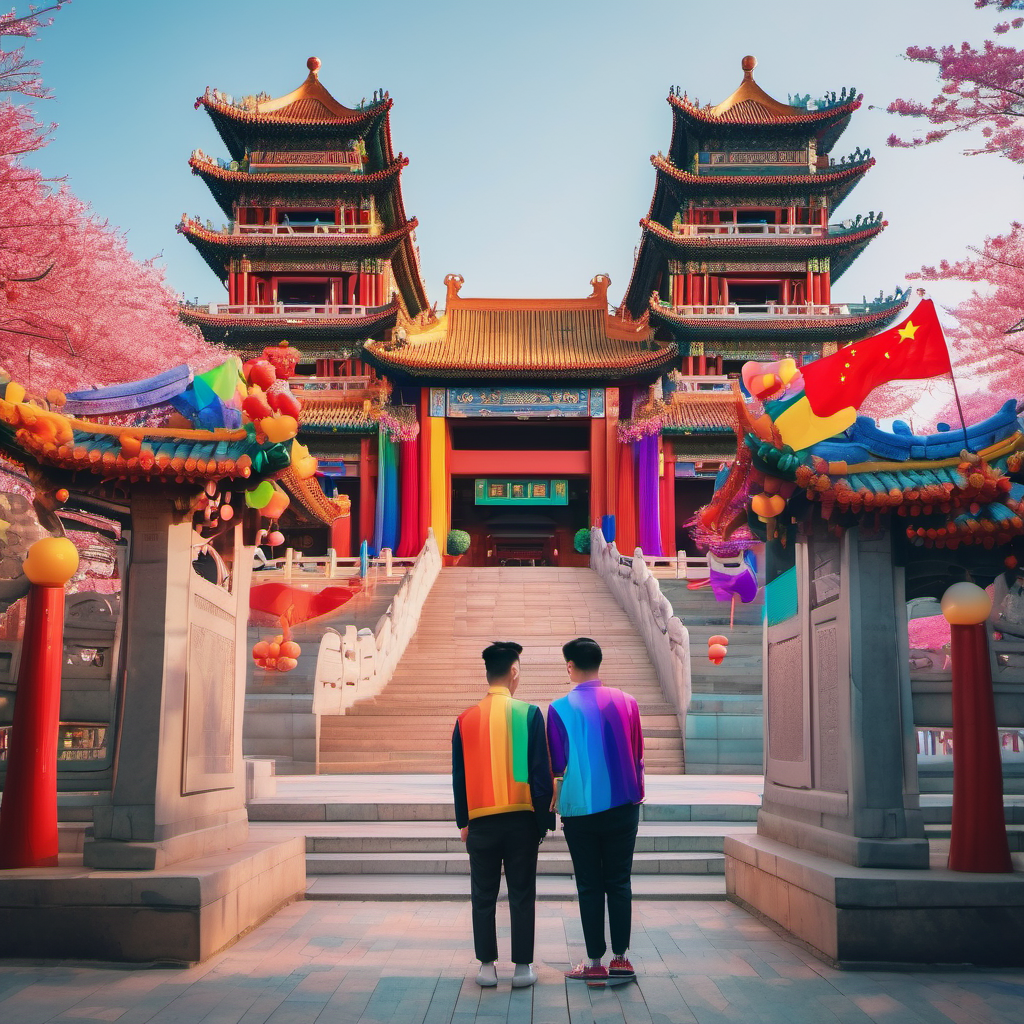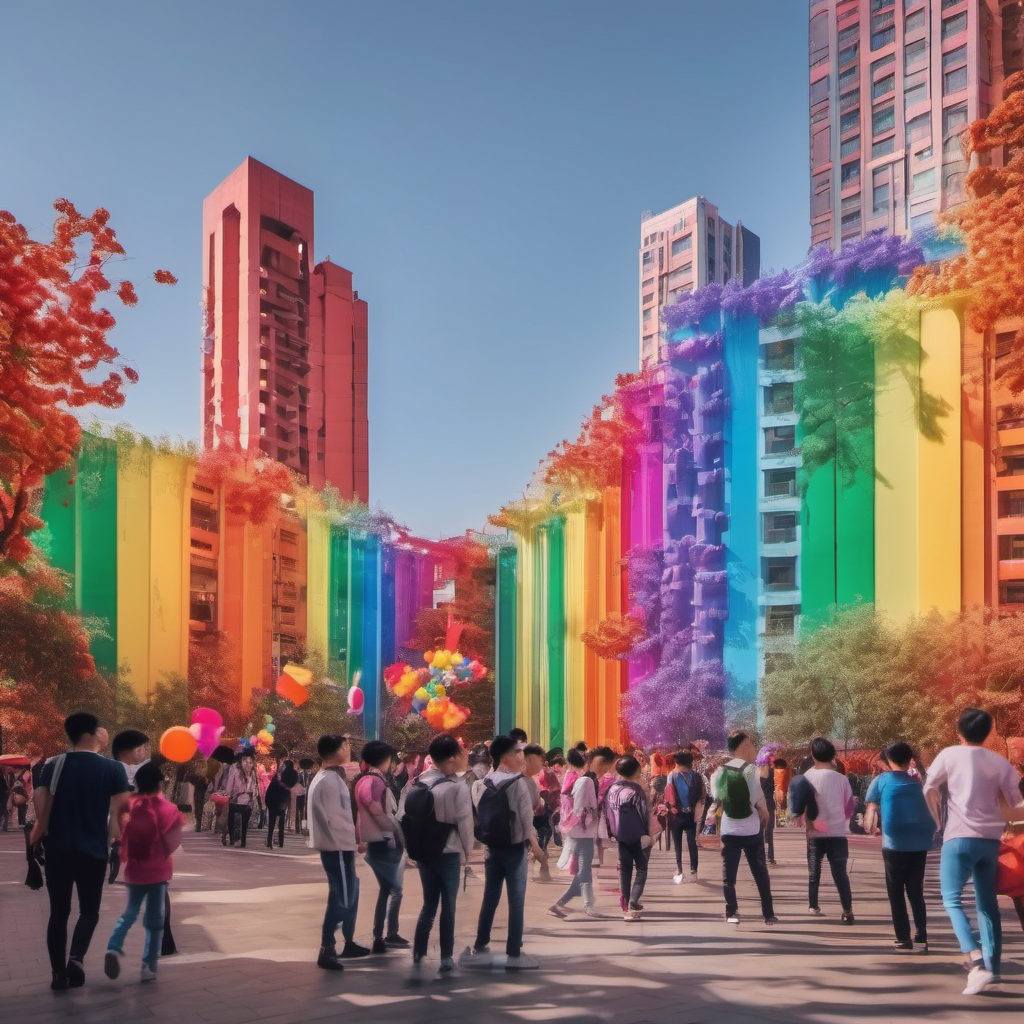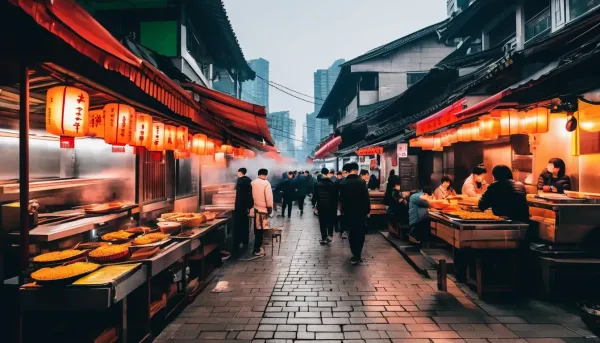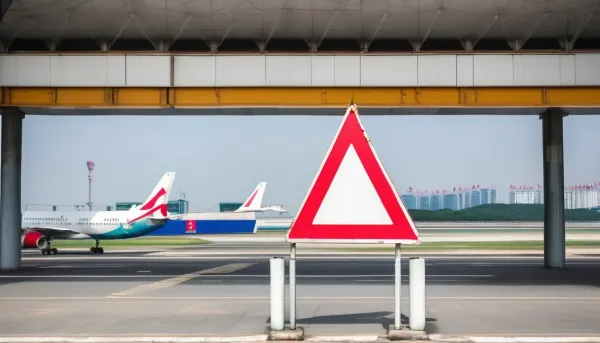LGBT+ Friendly Cities in Mainland China: Chongqing, Chengdu, Shanghai, Shenzhen
Is LGBT+ travelers welcomed in China? Yes! The journey towards full acceptance and equality for LGBT+ individuals in China remains ongoing, cultural shifts, legal reforms, and continued advocacy efforts are shaping the future landscape for the LGBT+ community across the country.

Are you planning a trip to mainland China and looking for LGBT+ friendly destinations? Look no further than Chongqing, Chengdu, Shanghai, and Shenzhen. These cities are renowned for their open-minded attitudes, vibrant cultures, and diverse attractions, making them ideal spots for LGBT+ travelers to explore and enjoy.
Chongqing: Where Modernity Meets Tradition
Chongqing, nestled in southwestern China, impresses with its blend of modernity and historical charm. Start your journey with a visit to Hongyadong, a bustling complex of restaurants, shops, and cafes built on a steep hillside overlooking the Jialing River. The area comes alive at night with vibrant lights and offers stunning views of the cityscape.
For a taste of local flavor, don't miss Chongqing hotpot, a spicy and aromatic dish that's a culinary must-try. Wander through Ciqikou Ancient Town to immerse yourself in traditional architecture and local crafts, perfect for souvenir hunting.
Chengdu: Sichuan's Culinary Capital
Chengdu, known for its laid-back vibe and mouthwatering cuisine, welcomes visitors with open arms. Begin your exploration at Jinli Ancient Street, a pedestrian thoroughfare lined with teahouses, souvenir shops, and Sichuan opera performances. While there, sample Sichuanese delicacies like mapo tofu and dan dan noodles.
Animal lovers should visit the Chengdu Research Base of Giant Panda Breeding, where you can observe these iconic creatures up close in a natural habitat. For a serene escape, explore Wuhou Shrine and Wenshu Monastery, two cultural landmarks offering a glimpse into Chengdu's rich history and spiritual traditions.
Shanghai: The Global Metropolis
Shanghai, a beacon of modernity and diversity, never fails to impress with its futuristic skyline and cosmopolitan flair. Start your adventure at The Bund, a waterfront promenade overlooking the Huangpu River, offering panoramic views of Shanghai's iconic skyscrapers.
Delve into Shanghai's past at Yu Garden and Old Town, where classical Chinese architecture meets bustling markets and tranquil gardens. For a taste of Shanghai's culinary scene, indulge in xiaolongbao (soup dumplings) and shengjianbao (pan-fried dumplings) at local eateries.
Shenzhen: Innovation and Culture
Shenzhen, often dubbed China's Silicon Valley, blends innovation with cultural richness. Explore Splendid China Folk Village, a theme park showcasing China's diverse cultures through miniature replicas of famous landmarks. Dafen Oil Painting Village offers a unique artistic experience, where you can observe local artists at work and even commission a custom painting.
Nature enthusiasts will appreciate Lianhuashan Park and Fairy Lake Botanical Garden, serene green spaces offering respite from the city's hustle and bustle. In the evening, stroll along Coco Park, a popular entertainment district brimming with bars, restaurants, and live music venues.

General Tips for LGBT+ Travelers to China
While these cities are generally welcoming, it's advisable to exercise discretion in public displays of affection, as attitudes toward LGBT+ individuals can vary among locals. English is widely spoken in tourist areas, but learning a few basic phrases in Mandarin can enhance your experience and facilitate interactions with locals.
Transportation within each city is efficient, with options ranging from subway systems to taxis and ride-sharing services. Consider exploring beyond the urban centers to discover hidden gems and experience authentic local life.
Whether you're drawn to Chengdu's culinary delights, Shanghai's modern marvels, Chongqing's scenic vistas, or Shenzhen's innovative spirit, each city offers a unique blend of culture, history, and hospitality. Embrace the diversity and vibrancy of mainland China as you embark on a memorable journey through these LGBT+ friendly destinations.
Navigating Diversity: The LGBT+ Community in China
The LGBT+ community in China faces a complex landscape shaped by a mixture of social, cultural, and political factors. While attitudes towards LGBT+ individuals have been gradually evolving in urban centers, rural areas and more conservative regions still maintain traditional views on sexuality and gender identity.
In major cities like Shanghai, Chongqing, Chengdu and Shenzhen, there is a visible LGBT+ presence with vibrant nightlife scenes, community organizations, and events. These cities have become hubs of acceptance and visibility for LGBT+ individuals, fostering a growing sense of community and activism. LGBT+ bars, clubs, and cafes offer safe spaces for socializing and networking, while LGBT+ organizations provide support, advocacy, and resources.
However, despite these strides, challenges persist. Officially, China does not recognize same-sex marriage, and there are no specific nationwide laws protecting against discrimination based on sexual orientation or gender identity. This legal ambiguity can lead to instances of discrimination in employment, housing, and other areas of public life.
In recent years, there has been a notable increase in visibility and awareness of LGBT+ issues in Chinese media and popular culture. Celebrities and public figures have begun to speak out in support of LGBT+ rights, helping to shift societal attitudes gradually.
On a grassroots level, LGBT+ activists and allies continue to push for legal protections and greater social acceptance. Pride events, though often met with challenges from authorities, have grown in number and visibility, demonstrating a desire for inclusivity and equality among the LGBT+ community.
Overall, while progress has been made in certain urban centers, the journey towards full acceptance and equality for LGBT+ individuals in China remains ongoing and nuanced. Cultural shifts, legal reforms, and continued advocacy efforts will play crucial roles in shaping the future landscape for the LGBT+ community across the country.




